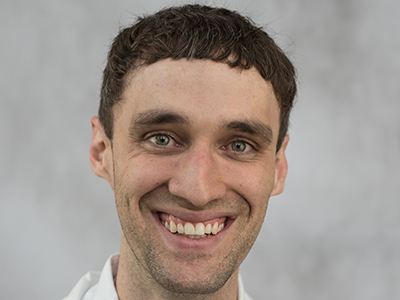 UAB Neurosurgery Resident Jacob Lepard, M.D. recently won the Residents and Fellows Award for best abstract at the Global Neurosurgery: Ask Not for Whom the Bell Tolls virtual symposium. The meeting was joint-hosted by the World Federation of Neurosurgical Societies and Rutgers New Jersey Medical School.
UAB Neurosurgery Resident Jacob Lepard, M.D. recently won the Residents and Fellows Award for best abstract at the Global Neurosurgery: Ask Not for Whom the Bell Tolls virtual symposium. The meeting was joint-hosted by the World Federation of Neurosurgical Societies and Rutgers New Jersey Medical School.
At the meeting, Lepard presented two talks, the first being "Clinical Experiences in Global Neurosurgery: The Resident's Role." This was an invited talk in a resident-led symposium on clinical and research involvement in global neurosurgery. It focused on practical aspects of traveling abroad and being involved in global neurosurgical efforts while still in training.
“It was a great opportunity to highlight the many opportunities and ‘above and beyond’ support that UAB Neurosurgery provided during my research year to participate in global neurosurgery research and advocacy work,” said Lepard.
Lepard’s second presentation, "The Initial Experience of InterSurgeon," was a short summary detailing the launch and initial experience of the digital collaboration platform, developed at UAB by InterSurgeon co-founder James Johnston, Jr., M.D. The main finding of Lepard’s study is that even before the COVID-19 pandemic, international neurosurgical partnerships were drifting away from mission trips and towards largely digital collaboration, with education and sustainable clinical presence being the primary goals.
The Global Neurosurgery symposium marks the largest event of its kind. There were over 1,000 registrants, with 160 speakers from 34 countries, across three days. It was broadcast in live translation to several hundred people in China, and had a combined total of 11,300 Facebook live views for the event, reaching almost 41,000 people across 44 countries around the globe.
Lepard correlates the increased participation across the globe this year to a more accessible, equitable virtual meeting platform option. Without travel and registration expenses, as well as language barriers standing in the way (sessions were digitally translated), many more neurosurgeon and neurosurgeon-trainees were able to participate. During one of his sessions, Lepard joined speakers from the Democratic Republic of Congo, India and the United Arab Emirates.
“The massive increase in participation and dissemination at this year’s conference highlights the growing momentum of global neurosurgery in the academic and organized neurosurgical arenas,” said Lepard. “It was great for UAB Neurosurgery to have a strong presence in a meeting like this to show our involvement in this growing field.”